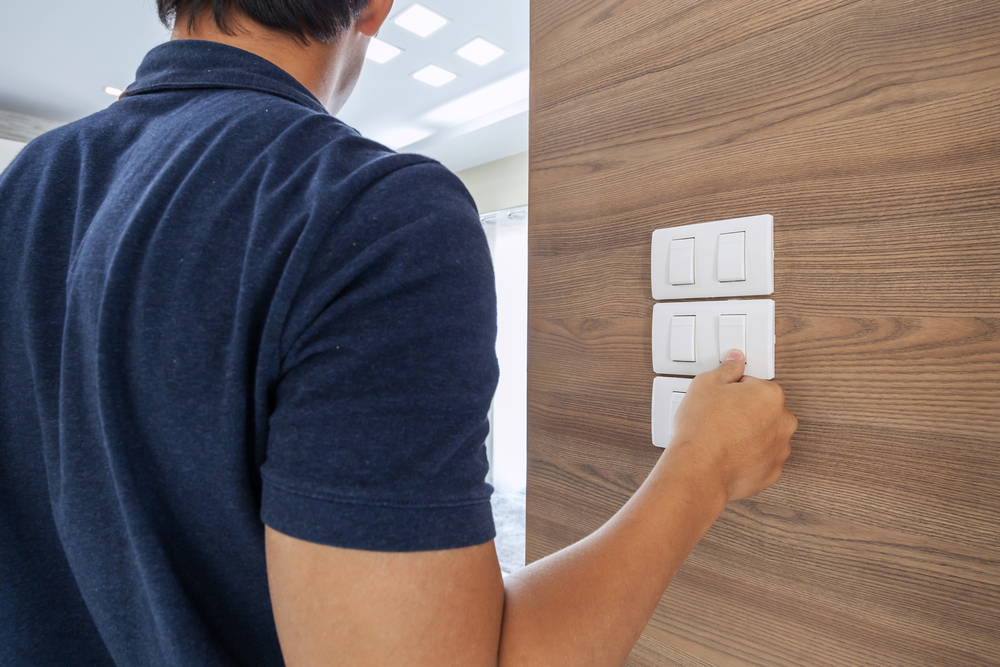These are the Easiest DIY Energy-Efficiency Jobs for the Home
Energy-efficiency jobs could imply a career in energy-efficiency like an architect that is LEED-certified. An energy-efficiency auditor finds all the energy drains in a home and helps to maximize the efficiency of the home. There also are energy-efficiency jobs or projects that homeowners can tackle to enhance and maximize the energy efficiency of the home.
Not every homeowner is up to the task of DIY, but there are many energy efficiency jobs that are fairly simple for anyone. These are the easiest DIY energy-efficiency jobs for the home:
- Swap old light bulbs for LED
- Adjust the thermostat (78 degrees Fahrenheit during summer, 68 degrees Fahrenheit during winter)
- Wash full loads of laundry
- Wash full loads of dishes
- Use blackout curtains during the summer
- Control energy use with the Internet of Things by using smart outlets and power strips
- Turn off the lights when they aren’t in use
Energy Efficiency is Easy!
These simple changes are easy and require no work for the homeowner. Little changes can make a bigger impact on energy use than homeowners realize.
While upgrading appliances and HVAC systems to energy-efficient options can add even more savings, some homeowners aren’t in need of new appliances or a new heating and cooling system.
Homeowners won’t be inclined to spend money when it isn’t necessary, and adjusting the thermostat and being mindful of how homeowners use those appliances (like only washing full loads of laundry) can help save energy.

Energy Efficiency and the Job Market
Energy-efficiency jobs as they relate to careers also could be growing. More homeowners are looking for solutions for sustainability and to maximize their energy efficiency. Today’s consumers also are more conscious about environmental issues like climate change.
Solar energy wasn’t always a reality for homeowners. However, now solar panels can be installed to help power the home. As this eco-friendly power has become more in demand, there also is a need for professionals to install the panels.
The popularity for energy-efficient homes also has created a market and demand for those who can audit the efficiency of homes. Some energy-efficient auditors also may be specially trained to ensure compliance for homes that will be given specific energy-efficient designations or certifications. In addition, states may provide query tools that help homeowners find an auditor.
Wind power also can be an alternative to standard electricity. Wind turbines also could require a professional for installation. Although some homeowners could DIY a small wind turbine project.

The Most Basic Energy-Efficient Projects Cost Very Little
Homeowners who want to take those small steps to create a more efficient home don’t have to invest much money. In fact, many changes that can help improve energy efficiency are free. Sometimes a homeowner’s daily bad habits are the hardest to change, though.
For example, while it might be convenient to wash a few items of clothing, it’s also wasteful. Instead, wash a full load and use the coldest setting possible and that’s safe. Blood and bacteria-prone stains should be washed as directed to ensure.
Unfortunately, many homeowners leave the lights on in rooms throughout the home. They also might leave the water running as they wash their hands or brush their teeth. Homeowners and their family might love to crank up to the heat during the winter or make the home really cool during summer.
All these habits can wreak havoc on a home’s carbon footprint and cause more expensive utility bills, too. Some changes might be inconvenient. Yet, decreasing energy use also can be impactful on the environment.
Not only can homeowners take steps to lower their energy use, but they also can make positive changes that can help the environment and even help fight climate change. Plant a tree or a garden to add greenery into the world; plants and trees convert carbon dioxide from the air into glucose, and they transform water into oxygen.

Homeowners with a Larger Budget Can Invest in These Energy-Saving Projects
Homeowners who are committed to decreasing their carbon footprint and creating a more energy-efficient home might consider investing in more extensive projects.
For example, installing solar panels can decrease the home’s dependence on public electricity. While these panels can be expensive to install, they also can add up to significant savings.
Geothermal heat systems use the heat from the ground to efficiently warm the home. Not only are these systems more energy-efficient for winter, but they also can be a more efficient way to cool off the home during summer.
Homeowners who do need to replace their HVAC system can invest in an energy-efficient option. Since heating and cooling accounts for nearly half of the home’s energy consumption, these systems can save money and decrease the home’s total energy use.
Energy-efficiency jobs can refer to careers that focus on energy efficiency—like a home energy auditor. They also could refer to jobs that homeowners can tackle around the home that increases the home’s energy efficiency. However, as an eco-friendly lifestyle starts to become a priority for more homeowners, both energy-efficiency projects (and jobs) and careers in this industry could surge.


